Pierogi: As Cute as a Dumpling
Pierogi (affectionately named by staff!) hatched at the National Aviary on September 28, 2022. During a routine neonatal health exam when he was just a few days old, Pierogi’s care team discovered he had a developmental eye condition. They brought in a human eye specialist who treats patients with special visual needs.
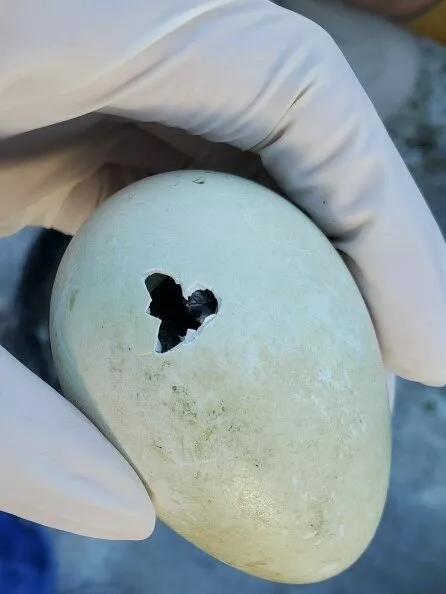
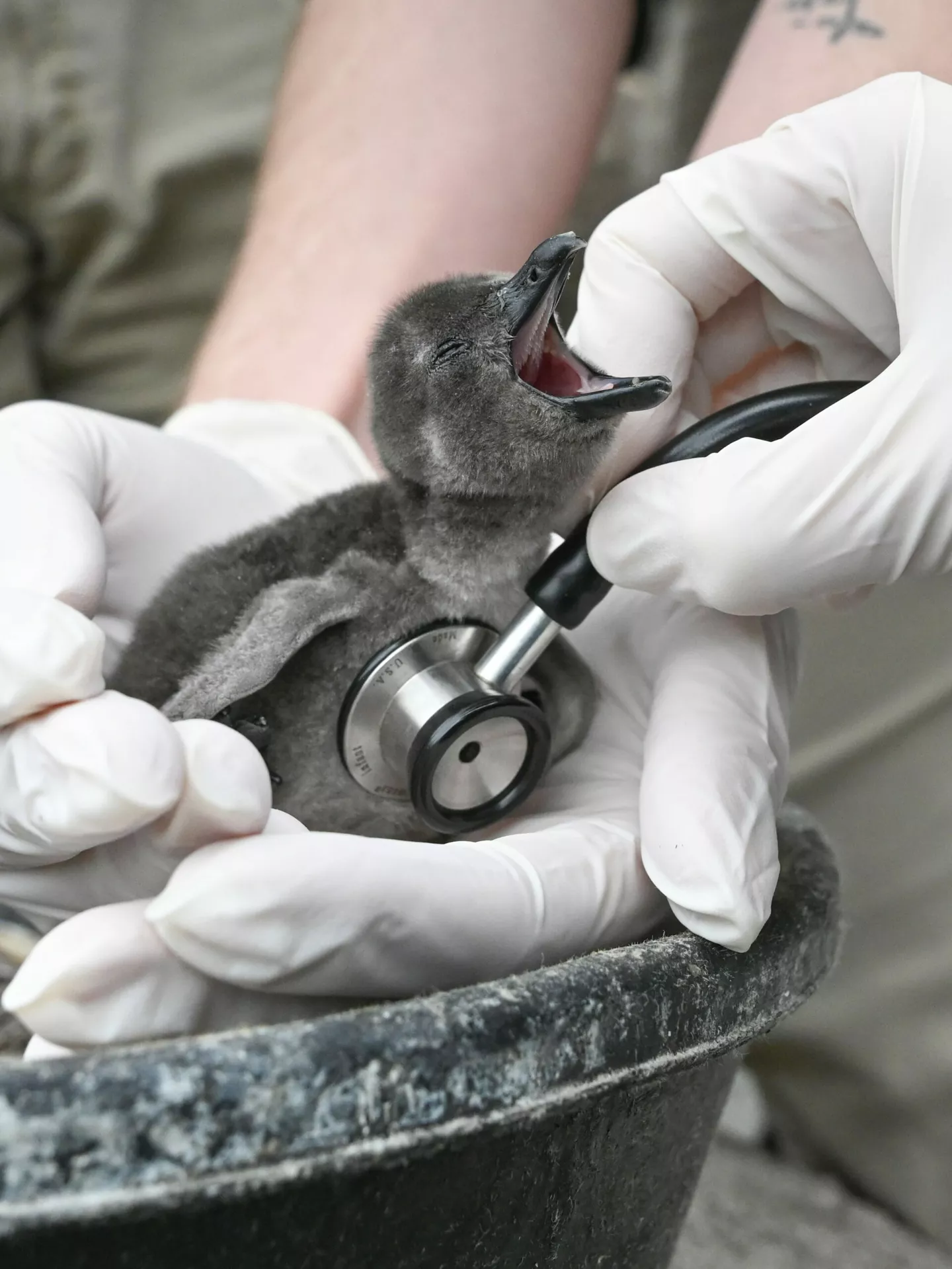
This specialist, alongside our veterinary team, performed a full eye exam, modifying the technique and tools used on humans for the unique features of a penguin patient. With this testing, our veterinary team saw his right eye and eyelid were not fully formed. Pierogi’s care team then developed ways to help him acclimate to visual changes, such as hand-feeding him on the left side so he could easily see fish.
Since his introduction to Penguin Point in 2023, Pierogi has fully adjusted and is a very smart penguin. He navigates the habitat just like the other colony members and receives regular health checkups, including monitoring his eye condition.
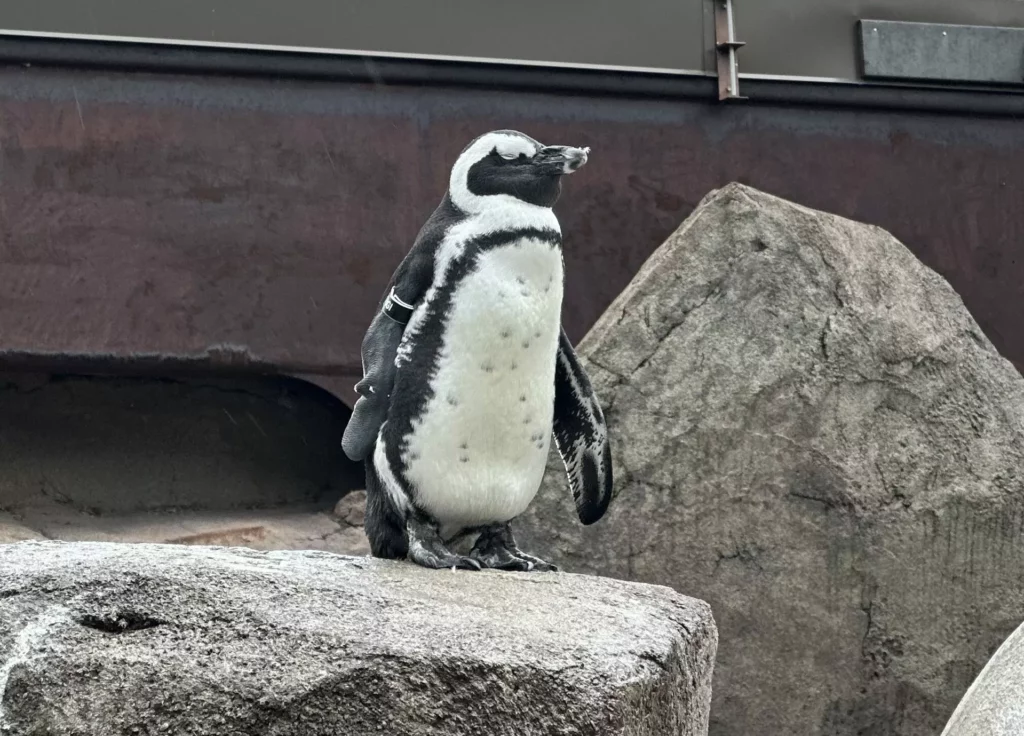
Penguin Point, 2023
For African Penguins, who could be functionally Extinct in the Wild by 2035, every hatching, like Pierogi, is a symbol of hope. Pierogi is the biological offspring of first-time parents Patrick and her mate, Owen. Because of the critical importance of every hatching for this Endangered species, Pierogi was raised by Patrick and Owen’s colony mates, Sidney and Bette. Sidney and Bette have fledged 10 chicks at the National Aviary and readily stepped in as “adoptive” parents. They are well-suited for caring for little ones and did a fantastic job feeding, brooding, and caring for Pierogi.
Donate today!Penguin Point features naturalistic elements of the South African coast – like heated rocky beaches, warm pools for diving and swimming, and cozy nest burrows – that encourage the natural behaviors of these social, curious birds. All of these are important features to raise chicks and juveniles.
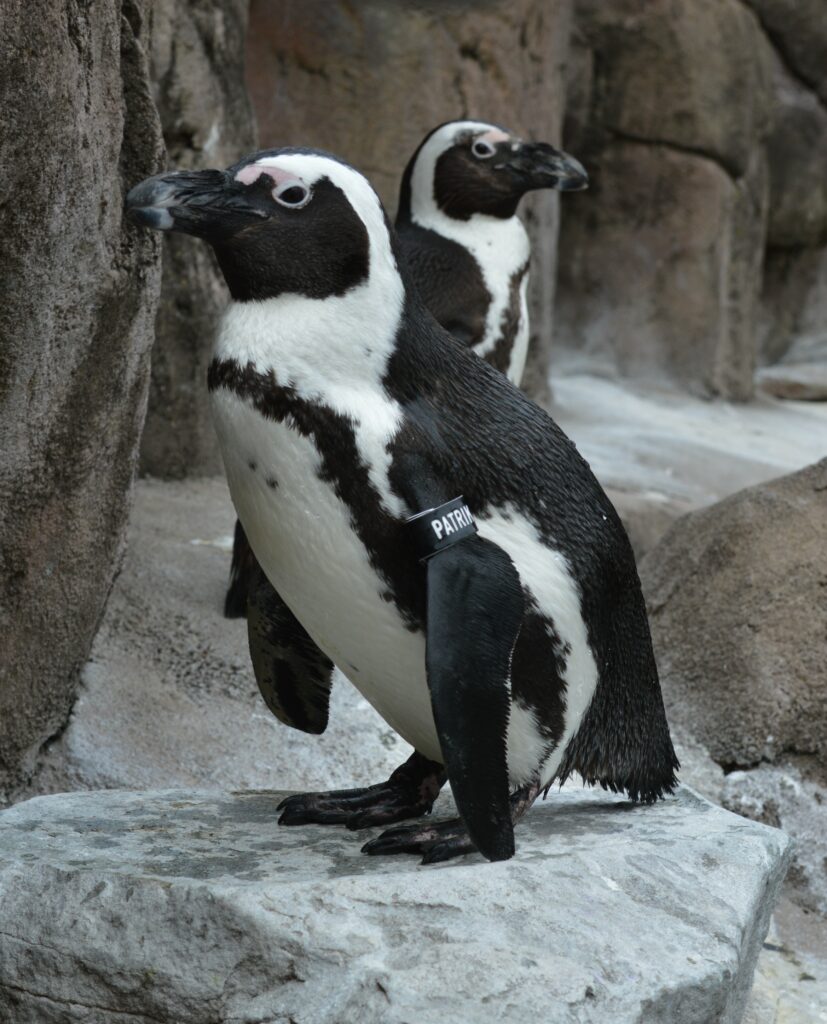
Penguin Point
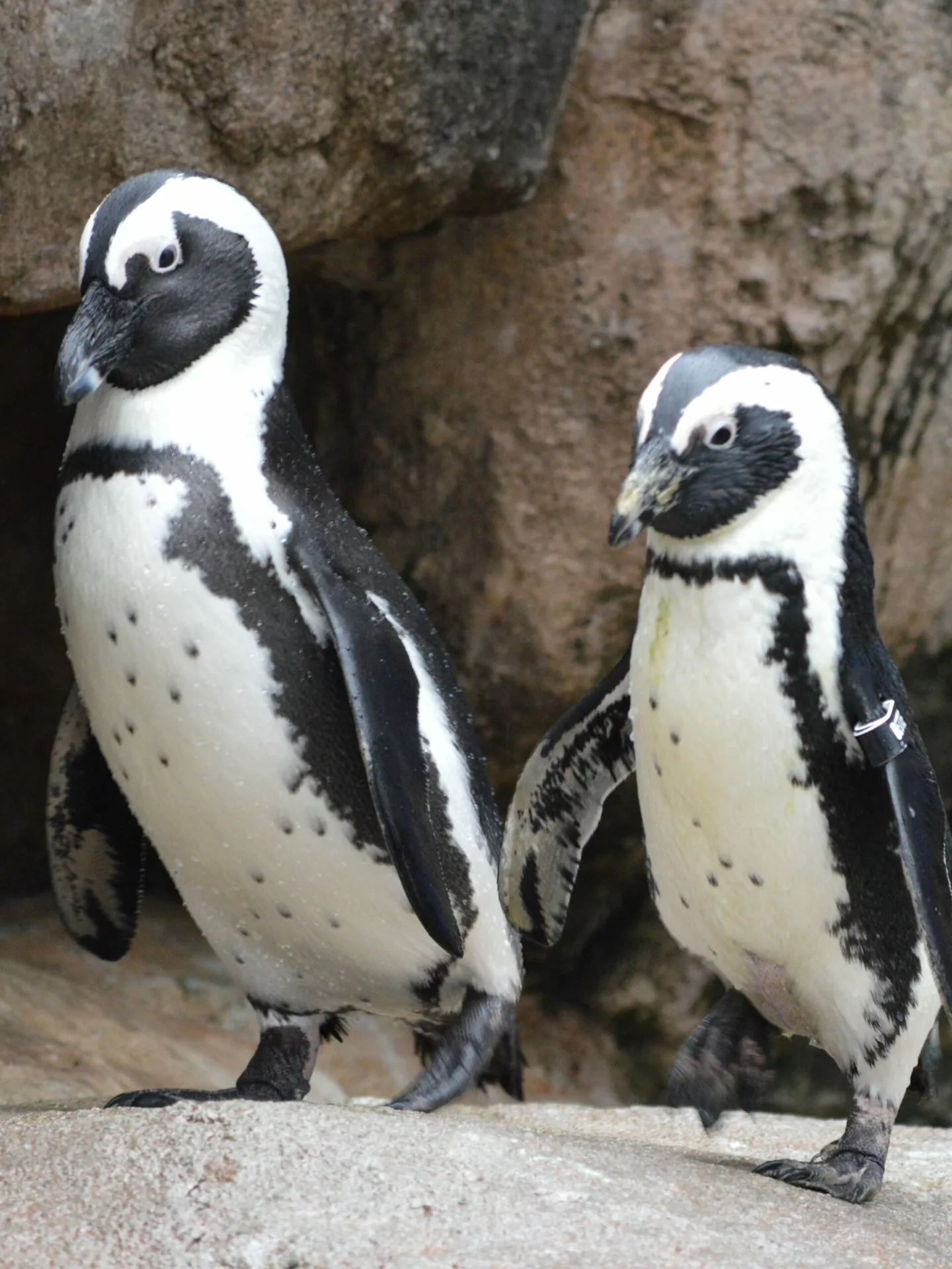
Sidney and Bette even utilized a specially designed artificial nest burrow in Penguin Point to help raise him. This burrow offers ideal conditions for eggs and chicks by mimicking the natural burrows African Penguins would create in the wild.
Nest burrows like the one used by Sidney and Bette to raise Pierogi have been deployed in South Africa and Namibia, where human disturbance at nesting sites has greatly affected penguins’ breeding success. Human-caused pressures including the overharvesting of fish and disasters like oil spills and disturbed nesting grounds have caused rapid declines in African Penguin populations. Today, less than 3% of the wild African Penguin population remains, which numbered in the millions a century ago.
The National Aviary is the leader of the Association of Zoos and Aquariums (AZA): Saving Animals From Extinction (SAFE) program for African Penguins. This program is coordinated by National Aviary Senior Conservation Scientist Dr. Patty McGill, who works with colleagues at the Aviary and around the world to identify and address the short-term and long-term challenges plaguing this species.
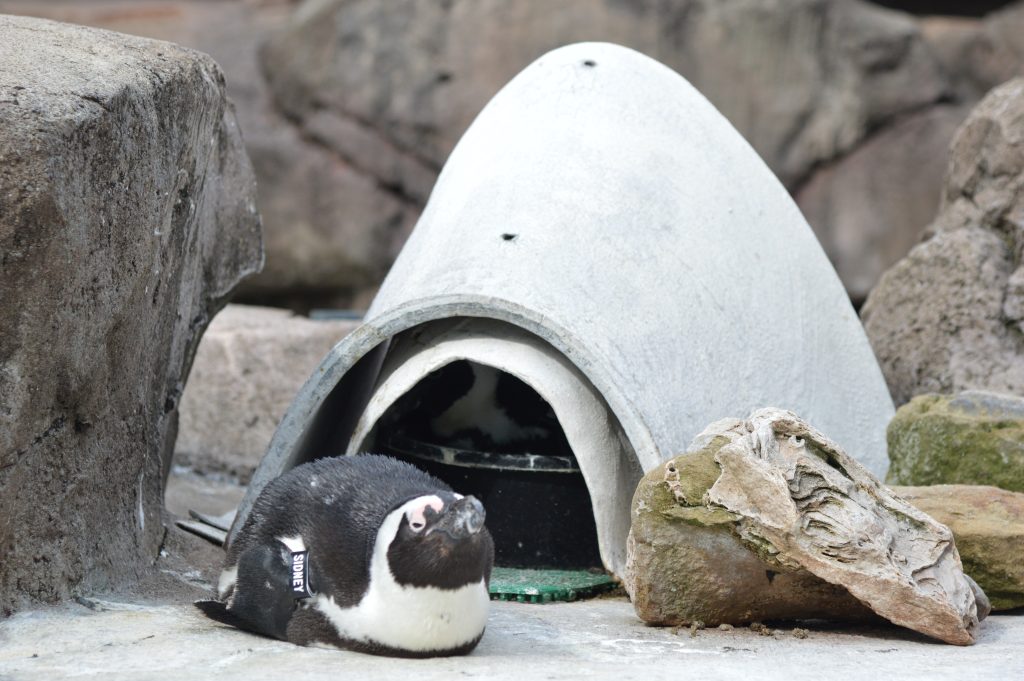
According to National Aviary Assistant Manager of Animal Care Chris Gaus, “Each hatching ins unique and we are always working to ensure chicks and parents are set up to thrive. This is particularly important in the very early days of chickhood, when chicks are fragile and require a high level of care.”
Donate Today!Patrick and Owen hatched two additional African Penguin chicks in November 2023! This time around, Patrick and Owen incubated their two eggs inside a Penguin Point nesting cave and proved themselves to be dedicated parents! The National Aviary’s expert care team continues to monitor the family and can see they are all doing well.
Read More about the Dynamic DuoOther ways to support Pierogi and his colony members
Symbolically adopt an African Penguin chick, book a Penguin Encounter to meet an African Penguin up close, and visit the colony at Penguin Point for free for a year with a Traditional Membership.
